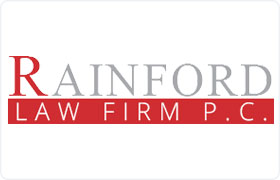Clarkston Bankruptcy & Debt Lawyer, Georgia
Sponsored Law Firm
-
 x
x

Click For More Info:
-
Rainford Law Firm P.C.
4920 N Henry Blvd. Stockbridge, GA 30281» view mapBankruptcy & Debt Law Experienced Bankruptcy & Debt Lawyer
Regardless of your situation, Attorney Chalcia Rainford is more than happy to guide you in the direction that will be most beneficial for you!
800-632-9140
Ralph S. Goldberg
✓ VERIFIEDBankruptcy & Debt, Lawsuit & Dispute, Civil & Human Rights
Ralph Goldberg has practiced law since 1975. He is a member of all courts in Georgia, and the Eleventh Circuit Court of Appeals, and Supreme Court of ... (more)
Kirby Clements
✓ VERIFIEDCriminal, Accident & Injury, Credit & Debt
Kirby Clements, Jr. is our senior trial attorney. He is admitted to practice in Georgia, New York and the District of Columbia. He is a member of the ... (more)
Charles Edward Taylor
Divorce & Family Law, Misdemeanor, Bankruptcy & Debt, Accident & Injury
Status: In Good Standing Licensed: 27 Years
Jeff Field
Bankruptcy & Debt, Consumer Bankruptcy, Credit & Debt, Reorganization
Status: In Good Standing Licensed: 40 Years
FREE CONSULTATION
CONTACT Chalcia Rainford Stockbridge, GA
Chalcia Rainford Stockbridge, GA AboutRainford Law Firm P.C.
AboutRainford Law Firm P.C. Practice AreasExpertise
Practice AreasExpertise


